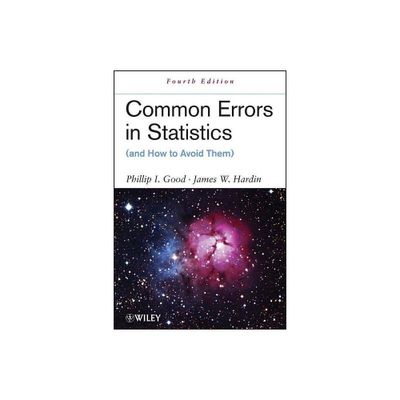Home
An Exposition of Vulgar and Common Errors Adapted to the Year of Grace MDCCCXLV
Loading Inventory...
Barnes and Noble
An Exposition of Vulgar and Common Errors Adapted to the Year of Grace MDCCCXLV
Current price: $4.99


Barnes and Noble
An Exposition of Vulgar and Common Errors Adapted to the Year of Grace MDCCCXLV
Current price: $4.99
Loading Inventory...
Size: OS
*Product Information may vary - to confirm product availability, pricing, and additional information please contact Barnes and Noble
An excerpt from the author's note TO THE READER.
IN ancient times it was held as a matter of faith by many, that man's spiritual part did not go at once to its ultimate state of existence, but did undergo a kind of purification, by the passing from one body to another of a better or worse kind; until, being thus corrected of its earthly desires and propensions, it was fitted for its final beatitude. Pythagoras, it was said by some, had good recollection of the time when his soul was far worse bestowed than in that body wherein he preached temperance and virtue so effectually to the citizens of Crotona, as to raise that city at once to greatness, and its people to a merited superiority over their neighbours of Sybaris: — a body kept in such holiness and purity by its beatified inhabitant, that we may well believe it fitted for that resurrection of the just, where "they that do well shall shine as the brightness of the firmament; and they that turn many to righteousness, as the stars for ever and ever."
Good reader, I will not ask thee to believe that Pythagoras hath revisited earth under my semblance, albeit, my wish to amend the morals, and increase the wise knowledge of my contemporaries, be not less lively than his; but merely to give me so far credit as to believe for the nonce, that the pen which doth now address thee, is that of Thomas Brown, whilome Doctor of Physick; who began his inquiry into vulgar and common errors some two centuries back, and having laughed somewhat at the odd blunders in science made by the men of that age, hath now, in return, somewhat to blush for his own. We are always wont to inquire anxiously what men of other lands have to say concerning us; rightly judging that they who have been brought up in other habits, will notice the strangenesses or excellencies of ours, with a sharper observation than that of one born and nurtured in the country: there is, therefore, good reason to think that the opinions of a man of another age stepping onward into this, will not be without their value to such as can forget their own præjudgments so far as to profit thereby.
IN ancient times it was held as a matter of faith by many, that man's spiritual part did not go at once to its ultimate state of existence, but did undergo a kind of purification, by the passing from one body to another of a better or worse kind; until, being thus corrected of its earthly desires and propensions, it was fitted for its final beatitude. Pythagoras, it was said by some, had good recollection of the time when his soul was far worse bestowed than in that body wherein he preached temperance and virtue so effectually to the citizens of Crotona, as to raise that city at once to greatness, and its people to a merited superiority over their neighbours of Sybaris: — a body kept in such holiness and purity by its beatified inhabitant, that we may well believe it fitted for that resurrection of the just, where "they that do well shall shine as the brightness of the firmament; and they that turn many to righteousness, as the stars for ever and ever."
Good reader, I will not ask thee to believe that Pythagoras hath revisited earth under my semblance, albeit, my wish to amend the morals, and increase the wise knowledge of my contemporaries, be not less lively than his; but merely to give me so far credit as to believe for the nonce, that the pen which doth now address thee, is that of Thomas Brown, whilome Doctor of Physick; who began his inquiry into vulgar and common errors some two centuries back, and having laughed somewhat at the odd blunders in science made by the men of that age, hath now, in return, somewhat to blush for his own. We are always wont to inquire anxiously what men of other lands have to say concerning us; rightly judging that they who have been brought up in other habits, will notice the strangenesses or excellencies of ours, with a sharper observation than that of one born and nurtured in the country: there is, therefore, good reason to think that the opinions of a man of another age stepping onward into this, will not be without their value to such as can forget their own præjudgments so far as to profit thereby.


















